Many people think that they’d love to live overseas. It’s a great dream, a life’s goal for many. For others it’s a passionate pursuit – a quest to find a better way of life, perhaps a simpler way of life, a higher quality of life, and one that almost always costs far, far less.
I should know. I’ve enjoyed living in Nicaragua for 14 years. Raised a family there. We drank the Kool-Aid, as they say. And it’s awesome…for us.
But how about you? Wouldn’t you like to know ahead of time if things will work out well? Or maybe how well it will work out? Life overseas is bound to be different after all.
Enjoying a life overseas requires some personal characteristics that seem to be common throughout the folks that do it well. These traits can be teased out if we know where to look. And, believe it or not, there’s a short quiz that will let you quickly find out. It gets to the heart of personality, the bedrock of success or failure as an expat. So today we’ll look at why this expat lifestyle is so awesome for some – and at the other end of the spectrum, simply miserable for others.
By the way, this is a great topic, even for people strictly looking at investment overseas. The investor who understands who comes and who stays is in a much better position to make wise investment selections. Especially as it relates to long term rental properties.
For those looking to move overseas, being ready means many things. Are you emotionally, financially, intellectually, spiritually, and practically ready to move overseas? Each of these factors is an article or more. So, at least the next couple articles will be about discovery. Self-discovery, as we examine if we ourselves are ready to live overseas. Practical discovery, as we look at countries, climates, and the various geographies available to us.
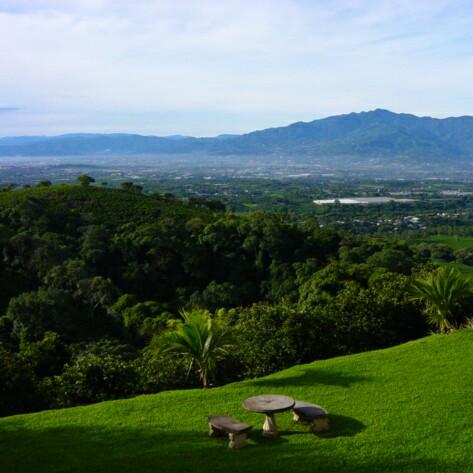
Tropical Highlands

Vineyard Estates
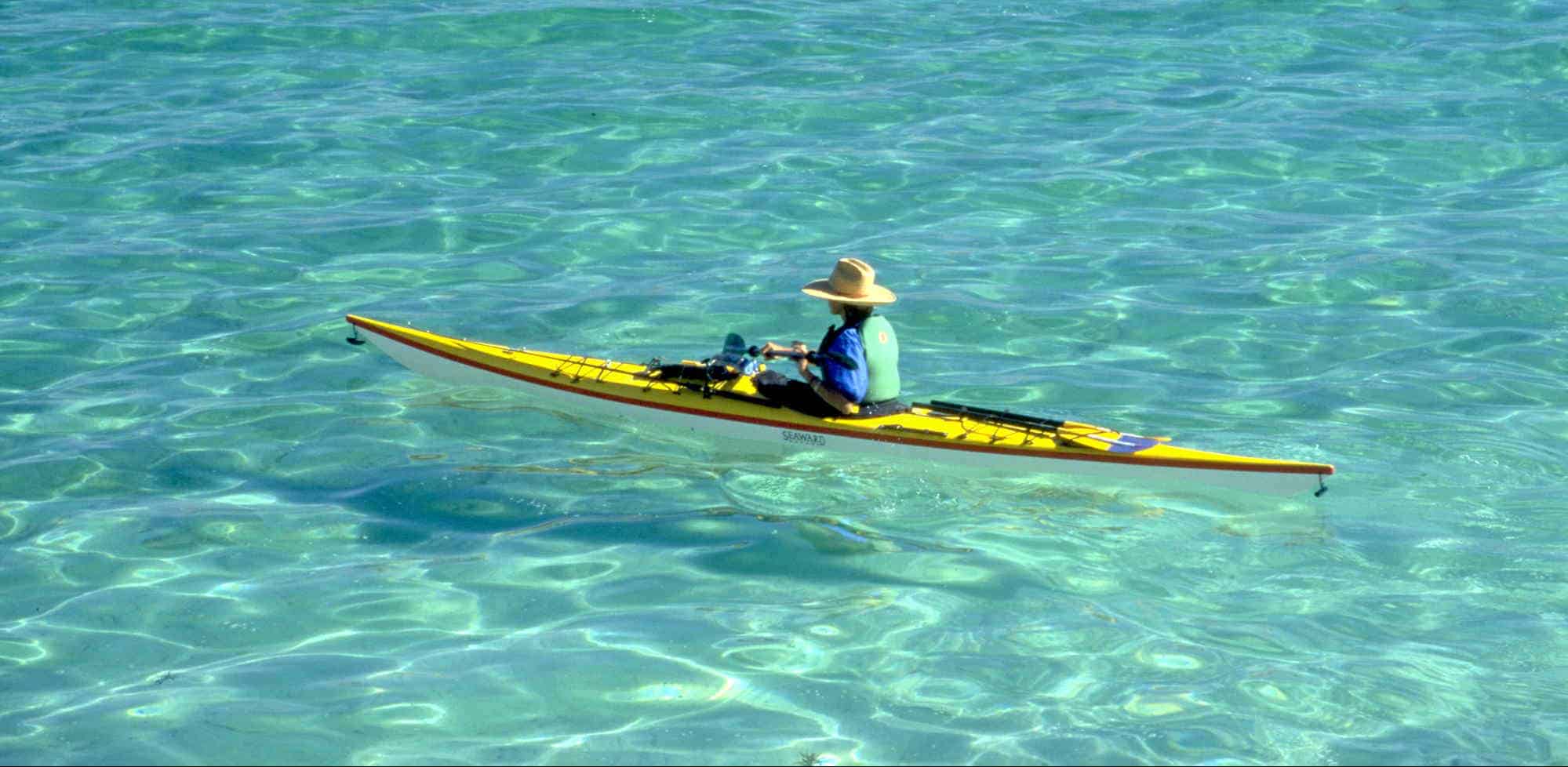
Grand Baymen Belize
Experience the Insider community that takes your international lifestyle to the next level. Download your FREE guide
"18 Steps to Implementing Your Plan B" instantly!
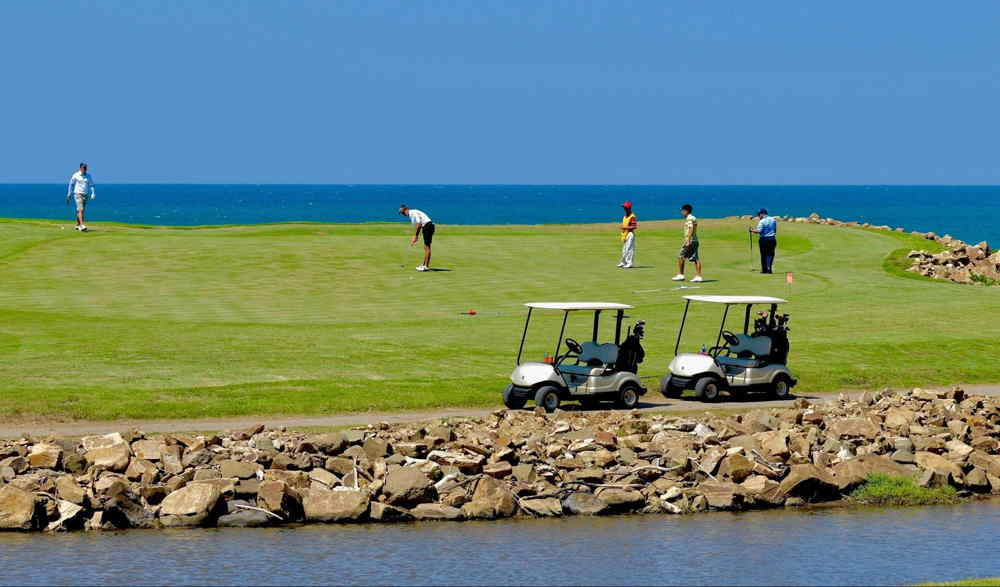
Gran Pacifica Nicaragua
And because of the breadth and importance of this subject, there will likely be many more articles about this topic in the months to come. Right now, we’ll tackle a fundamental reality directly associated with a decision to move overseas, perhaps the most fundamental for an enjoyable life…your personality.
Remember the saying, “No matter where I go, there I am.” It applies here perfectly. Some people see expatriating as an escape. However, if the situation you are trying to escape from is something between your ears, it will definitely “be there” when you “get there.” Most people, however, are running toward something, perhaps a higher quality of life, a lower cost of living, better weather. No matter what your reasons for looking overseas are, if you have certain and very specific personality characteristics, then you have the foundation for a high-quality, fun, and successful life abroad.
Granted, no quick thumbnail quiz is going to be definitive, but the quiz below is one of the best 15-question, quick to take, and fun self-examinations that seems to be, surprisingly, fairly accurate. If you take the short quiz below, you’ll certainly come away with a good sense about your chances of success as a satisfied, happy expat overseas There are some common traits that ring true for people who can transition to life overseas, because living abroad certainly requires some adjustments.
Let’s start with Culture Shock. The world’s a big place with many options and numerous places to live. Each of these locations will have a different culture, and in some cases, a radically different culture. But in all cases, how we interact with the culture is what matters for our happiness.
Truth be told, in some ways, it’s probably easier to adjust to the bigger things. They demand a frontal assault of your attention. You learn what they are, pay attention to them, and adjust consciously. But the ankle biters? These are the things that got to the Cobb family.
Take my wife, Carol, for instance. Her pet peeve is the parking attendants found in just about every parking lot around Managua, quite common in the developing world. These attendants work mostly as security for the cars. Along the streets, the unemployed take up the role. In many cases, they will buy an official looking “uniform” to serve as the role of parking attendant.

Note: Along the street, this service is more like “protection” in the old mob sense. I highly recommend that you let them know you’ll pay them a tip upon return. Then your car does well. Ignore them at your peril. This is not true in the parking lots of the mall or a restaurant, where they do watch the cars and expect no tip.
But back to the parking attendants themselves. It’s not the car watching that gets to my wife. It’s the whistle. All these guys have whistles. And they love to use them. They absolutely believe it is their mission to “help you” park your car. They feel the need to direct you into a parking spot big enough for a Mack Truck in many cases. They do this with a dedication that borders on fanatical. Hands waving, whistle blowing, blocking an oncoming car that has already stopped to let you park.
The reality is that 99% of these guys have never driven a car. They don’t have a clue how to park a car other than from watching people do it all day long. And they do love to use that whistle.
Carol and I have a saying: When you want to run down the parking attendant, it’s time for a trip to the States. Ankle biter for sure. But also, a canary in a coal mine when a break from the fun is needed.
But ankle biters aside, because they exist everywhere, the benefits of international living are numerous and largely phenomenal. Our family enjoys life with a maid and gardener. This means no chores ever. It means time to read, play games, and make weekend trips to the beaches in Nicaragua. Time with family is priceless, yet in much of the developing world, it can be enjoyed affordably.
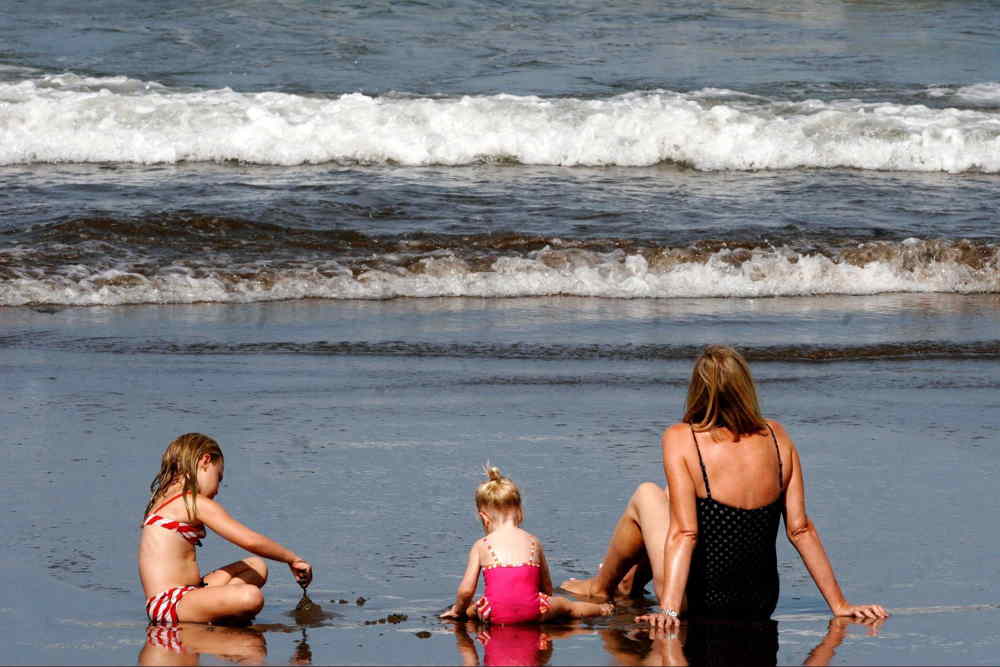

The Cobbs Enjoying Asuchillo Beach at Gran Pacifica
We also have a huge bag of organic fruit and vegetables delivered to our home every Tuesday morning. Delivered for $8.00. We add organic eggs and cheese to the order for a few dollars more. I have no idea what this would cost at Whole (paycheck) Foods up north. Our family eats well and healthy for pennies on the dollar.

Goods in our Delivery

Whole Foods / whole paycheck
We also enjoy the more common elements of a North American life. We go to the movies for a couple bucks or sit in a lazy-boy and have food delivered seat-side for $6.50. First-run Hollywood movies in a great multiplex movie theatre like any you are familiar with. If we want Quiznos subs, Pizza Hut, or BK, they are available. But so are fine dining establishments of every variety. A world-class, 3-course meal prepared by a Cordon Bleu chef who married a Nicaraguan woman and moved back home with her is $25-$30 a person. Add the $1000 bottle of wine if you’d like.

VIP Theatre

Casa de los Nogueras

Nogueras Seafood
Life overseas can be great, and it is for many. With 14 years living as an expat, and a total of 24 years working overseas, I have stayed consciously aware of the expat experience as I lived it and worked within it. Over the years, I have seen many people transition well to the lifestyle, but I’ve also some respond not so well.
Who stays and who leaves? This was always something that intrigued me. Why do some people transition well and adjust to a new home overseas? Why do others leave and go back? What are the characteristics that make this transition easy for the people who do stay? These are great questions and there’s actually a simple way to scratch the surface and find out.
Take the simple and easy quiz. 15 questions that tell you enough about yourself that you’ll know whether this will be an easy transition to a life overseas, or one that will require a bit of work and change on your part. You rank each characteristic on a scale of 1-3, where “1” is not so much like you, and “3” describes you very well. In the end, you add up the points. The various ranges of scores from the scoring sheet give you an idea of how easy or how challenging a move and life overseas will be.
Here are the first 3 questions to give you an idea of how easy this is. Despite the simple format, the results are incredibly accurate.
- ____ Are you usually one of the first to try new things, new foods, and new experiences?
- ____ Are you able to relax, willing to adapt to a slower, easier going pace?
- ____ Are you a self-starter who doesn’t wait for someone else to get things done?
12 more questions like these are all there is to the quiz. They are all easy to answer and take a few seconds each. The results will be very enlightening. In 24 years of working overseas, I have never seen a better short tool to give results like this one.
One point that deserves serious attention is that it’s easy to fall into the trap of seeing through rose colored glasses when we think about a move overseas. Some of the publications out there sugar coat the realities and only point out the good. Life just isn’t like that. Not all of the realities are pleasant. Other publications do a much better job of giving you the pluses and minuses. If all you read is how good it is, then you are only getting part of the story.
One negative I’ve seen which drives people home after arriving, and maybe more than any other single reason, is poverty up close. In North America, we don’t have to see poverty unless we want to for the most part. Even the poor in the U.S. and Canada are generally “rich” when compared to developing world poverty. It’s a whole different thing.
The issue is that in many (most) parts of the world, the rich and poor tend to live right up against one another. Sure, there are exceptions to this, nice neighborhoods in a city for example. But shanty towns, homeless people, and the rural poor could be part of your scenery on a regular basis, depending on where you decide to call home and in which country.
If seeing poor people pulls at your heartstrings and makes you miserable all the time, then you might find it uncomfortable to stay overseas, or perhaps just in the region you’ve selected. On the other hand, if you view unfortunate circumstances as an opportunity to make a difference, get involved, then it’s a great way to spend some spare time. It is always highly rewarding finding the significance in helping others.
But first we must figure out to adjust our thinking from, “How bad and sad this is,” to an opportunity for personal growth. Things like poverty up close require some adjustment. The good news is that Lion’s, Rotary, and Kiwanis all have international clubs and work with outside organizations like Chair the Love who specializes in distributing wheelchairs in Latin America. An added benefit is that many of the members of these clubs speak English. Joining a service club is a great place to make new friends with those who share a common interest.
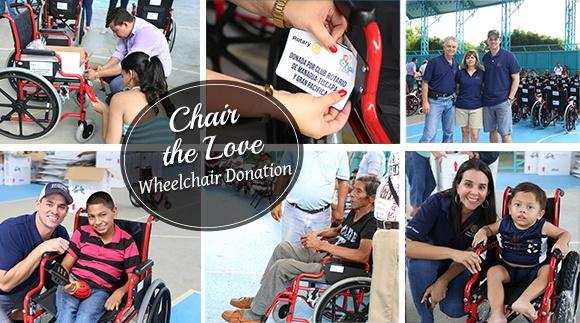
Faith based organizations like Catholic Relief Services and World Vision get in and change lives. NGO’s and Aid organizations are all active and have local programs that might be a good fit depending on your interest and abilities. Our company hired a full time Corporate Social Responsibility volunteer, Holly Wilson, who coordinates daily activities like teaching English for residents and guests at Gran Pacifica. Anyone who speaks English can make a difference. It’s just that easy.
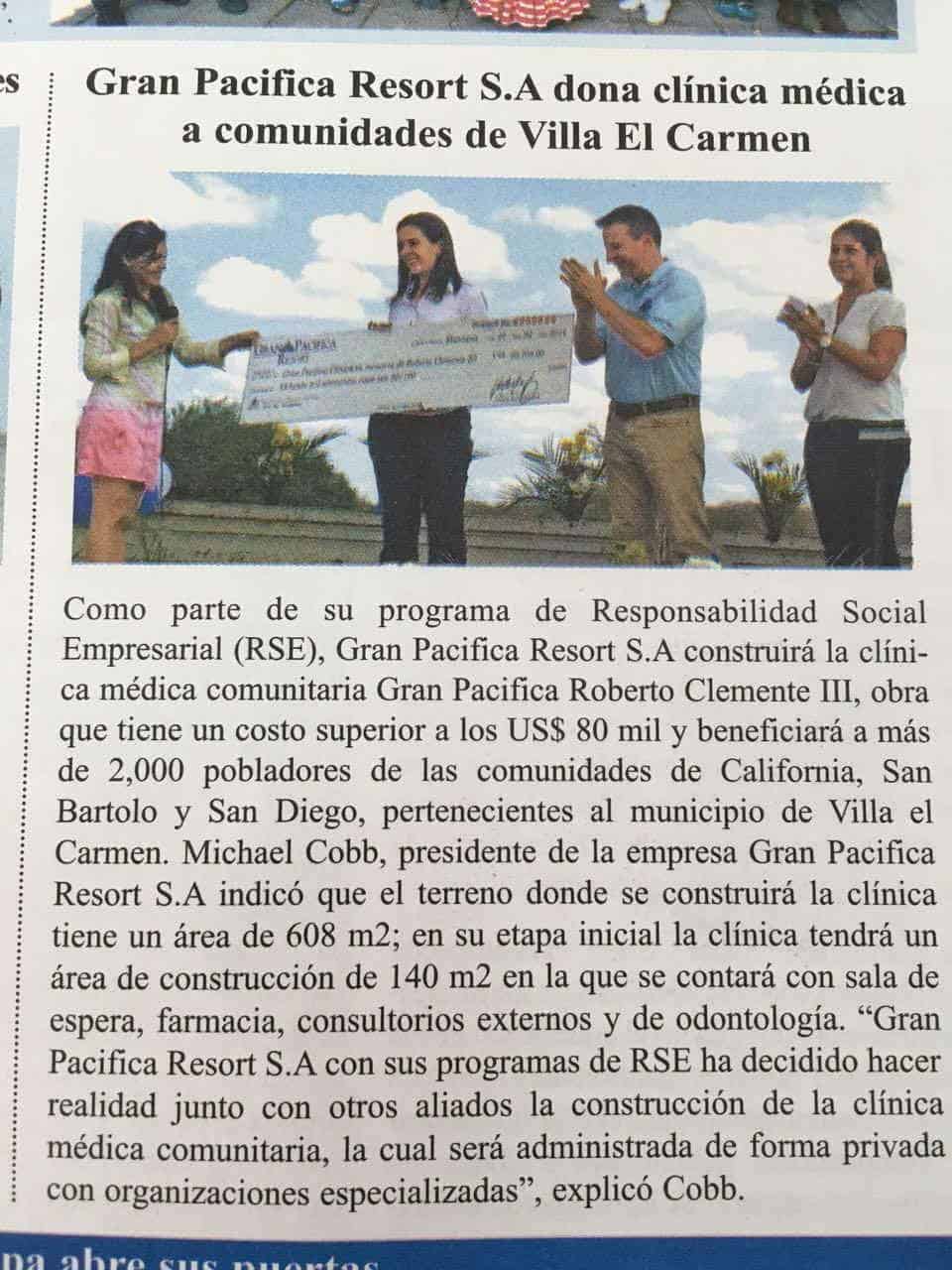
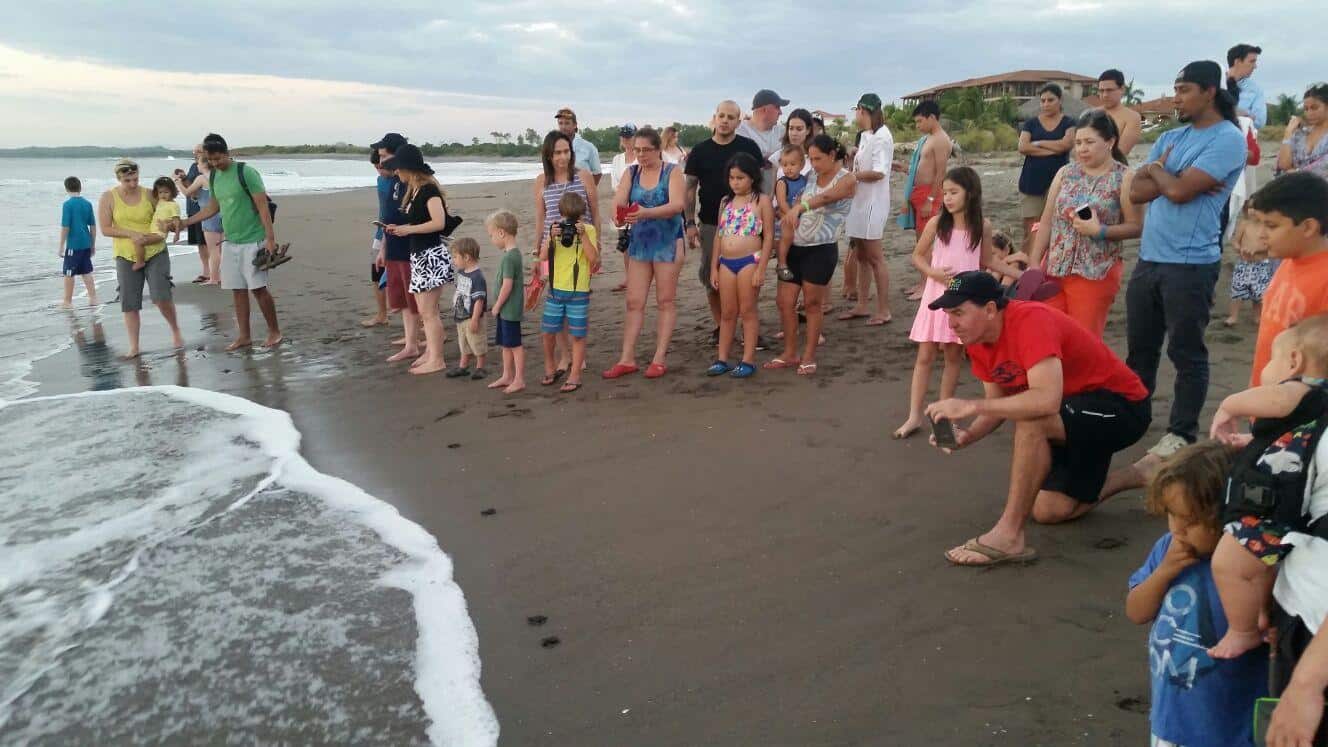

But it doesn’t have to stop there. Medical and administrative minded folks can work with Andrea Martinez who heads up our clinic program. Volunteers there get involved with things like staffing and running the new Roberto Clemente Health Clinic III that we recently completed. Ecologically oriented folks can help Osmon Martinez maintain and grow a Save the Turtles in Nicaragua program and then experience hatchling release on weekends each fall. We are proud of Holly, Andrea, and Osmon for the work they do. To see everything that Gran Pacifica is doing in the community, and to get an idea of how you can find opportunities to serve, click here.
For me it comes down to one fundamental perspective. Simply, through what glasses do we see our new world. Adventure is my preferred set of glasses to view the international expat experience. Can we maintain adventure eyes and see the challenges as opportunities for learning and growth? Most of us do when we first get there. But after several months, the “cute” customs can morph into nonsense and nuisance. It’s like any honeymoon. Same things, different viewpoint. But by keeping adventure eyes we can stay focused on the positives and enjoy the experience more.
Perspective is the key here, and the quiz gets to the heart of your perspective on life. If you take the quiz, reply back to this email with your score. We keep a running tally of the scores, and 10 years from now, we plan to circle back and see how accurate it really is. Perhaps you’ll be living overseas and have a story to tell for the newsletter. We’d love that.
Also, if after taking the quiz, you’d like to dig a little deeper, you may have an interest in our in-depth, self-evaluation tool. It begins to cover the many other factors that make for an easier transition and a high quality of life overseas. Let us know and we’ll send it over. This tool takes a little longer to complete, but it is worth the effort if you believe that moving overseas is right for you. Perhaps it is.
Conclusion
I hope you enjoyed this article: Are You Ready to Live Overseas? Take the Quiz and Find Out Today. Here is our country guide for Belize, Nicaragua, and Costa Rica! Enjoy, I know you’ll love them!
 Michael K. Cobb is the CEO and co-founder of ECI Developments which has properties throughout Latin America. He speaks all over the world on international real estate and is a board member of the National Association of Realtors.
Michael K. Cobb is the CEO and co-founder of ECI Developments which has properties throughout Latin America. He speaks all over the world on international real estate and is a board member of the National Association of Realtors.
Like Our Articles?
Then make sure to check out our Bookstore... we have titles packed full of premium offshore intel. Instant Download - Print off for your private library before the government demands we take these down!







